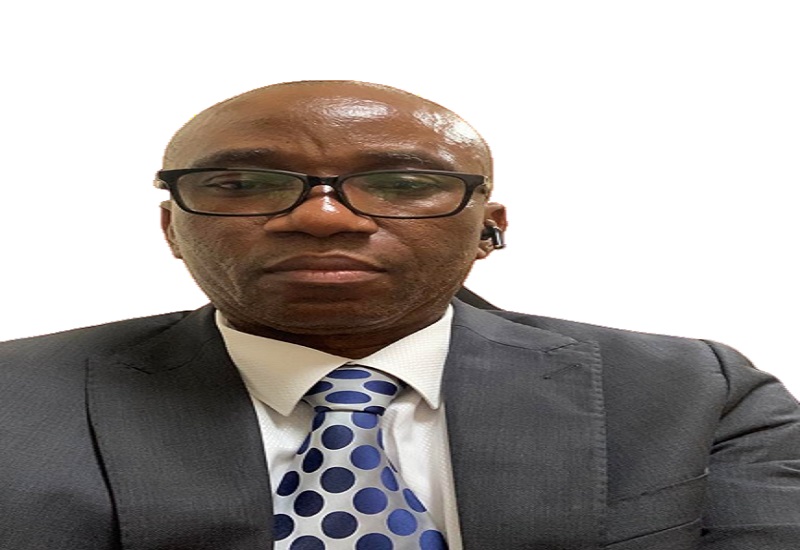Broadcasting
How to Identify Sub-standard Solar Components – PPC

In view of the current saturation of the Nigerian market with substandard solar panels, PPC Limited, Nigeria’s leading engineering and infrastructure development company, has highlighted ways to identify fake or substandard solar components.

While commenting on the concerns that clean energy consumers were not getting value for money from their solar energy investment, the Head of the Power Division at PPC Limited, Engr. Kelechi Onuigbo, said fake solar panels deliver reduced power output and have a short-term productive lifespan.
According to him, some of the defective panels are produced using non-solar materials that were added merely to create a high-quality impression or to hide faults in the design.
The renewable energy expert explained that some of the substandard voltaic solar panels were prone to security risks and were either defective, or “end-of-life” panels meant to be recycled, but illegally smuggled into the country.
Earlier on, the Federal Government had embarked on a series of initiatives to revitalize the nation’s power sector, one of which was the integration of Solar Power into the country’s energy mix, with plans to invest $10billion to drive the energy transition plan.
Onuigbo said, “It is undeniable that solar energy plays a crucial role in the attainment of the energy transition objectives set by the Federal Government.
“In order to meet the energy transition targets for the country, it is important to tackle the menace posed by the latest trend of invasion of substandard solar panels into the country.
“These compromised solar panels increase security risks for users and create vulnerabilities in their power system.
“There are many ways to identify them – one of which is the presence of visible cracks or debris inside the panels. This may be because the panels were produced with lower grade cells or soldered manually.”
He stated that the best manufacturers used top-notch components, automation and the finest manufacturing procedures to ensure their products meet industry performance standards.
Onuigbo said the quality of components used would ensure that the panels didn’t lose their efficiency before the end of the warranty period; adding that this was the reason PPC had partnered with best-in-class solar panel manufacturers to deliver reliable and affordable clean energy solutions to Nigerian corporates and SMEs.
While certain levels of degradation caused by extreme weather are inevitable, he said proper installation and regular maintenance would ensure that this was minimized and the panels continued to deliver optimally.
Broadcasting
Anambra State Government Launches SolutionLens to Drive Transparency and Citizen Engagement

Anambra State Government has launched SolutionLens, a technology-driven platform aimed at enhancing transparency, accountability, and citizen engagement in governance.

The platform, developed through a collaborative effort by the Ministry of Budget and Economic Planning, the Ministry of Information, and the Anambra State ICT Agency, was unveiled on Thursday, May 15, 2025, at the Solution Innovation District (SID) Building in Awka.
Speaking at the launch, Mrs. Chiamaka Nnake, Honourable Commissioner for Budget and Economic Planning, described SolutionLens as a democratic tool that simplifies the Open Government Partnership (OGP) process.
She emphasized its role in planning, budgeting, and fostering investor confidence through community-based feedback mechanisms.
In her remarks, Mrs. Ogochukwu Orji, the State Coordinator of OGP, noted that SolutionLens is designed to shine a light on public projects, empowering citizens to ask questions, hold the government accountable, and ensure resources are used for the common good.
Key Features of SolutionLens
Centralized digital hub for government projects
Interactive maps with a user-friendly interface
Live chat feature to connect citizens directly with MDAs
A live demonstration of the platform was conducted, followed by the formal inauguration of MDA focal persons, who will ensure the platform remains updated and responsive.
Participants commended Governor Charles Chukwuma Soludo, CFR, for this forward-thinking initiative, describing SolutionLens as a game-changer in governance.
The government urged citizens to actively engage with the platform and spread awareness, emphasizing that this initiative will safeguard the integrity and prosperity of Anambra State for generations to come.
Broadcasting
Governor Hyacinth Alia Named Among Nigeria’s Top 50 Digital Economy MVPs for 2025

Benue State Governor, Rev. Fr. Dr. Hyacinth Iormem Alia, has been named among the “50 Most Valuable Personalities (50MVPs) in Nigeria’s Digital Economy 2025,” a prestigious recognition celebrating visionary leadership in technology-driven governance.

Governor Alia’s administration has prioritized digital inclusion and ICT development, introducing groundbreaking initiatives that position Benue State at the forefront of Nigeria’s digital economy. Under his leadership, the government has established three key institutions: the Ministry of Communications, Innovation & Digital Economy, the Benue State Digital Infrastructure Company (BDIC), and the Benue State Digital Infrastructure Services Management and Enforcement Agency (BENDISMEA).
Since assuming office, Alia has launched several digital initiatives, including training over 40,000 civil servants in e-governance tools and equipping 10,000 youths with digital skills. Additionally, the government has set up 276 e-commerce hubs across council wards to support local businesses and young entrepreneurs.
The BDIC, a core driver of Benue’s tech transformation, has spearheaded projects in digital financial inclusion, AI education, and broadband expansion. The state has also partnered with the Digital Bridge Institute (DBI) to establish digital training hubs in all local government areas, targeting 23,000 trainees annually.
Alia’s recognition as one of Nigeria’s top digital leaders will be formalized at the West Africa Convergence Conference (WACC) 2025, scheduled for May 22 at The Colosseum, Lagos. The annual event, organized by Knowhow Media, brings together policymakers and innovators shaping Nigeria’s digital future.
Speaking on the selection process, Dr. Sola Afolabi, Chairman of the 2025 Nomination Committee, praised Alia’s contribution, describing his digital initiatives as “transformational steps that set the benchmark for technology-driven governance.”
Previous editions of the 50MVPs in Nigeria’s Digital Economy have honored notable figures such as Minister of Humanitarian Affairs, Prof. Nentawe Goshwe Yilwatda, and NDPC CEO, Dr. Vincent Olatunji.
Governor Alia’s reforms reflect a broader shift towards digital governance in Nigeria, highlighting the potential of technology to drive inclusive economic growth and efficient public administration.
Broadcasting
5 Things You Absolutely Need to Know About BBNaija Season 10



 Telecom2 days ago
Telecom2 days ago₦800 Billion Infrastructure Plan Set to Boost MTN’s Network Quality Nationwide

 E-Business2 days ago
E-Business2 days agoNITDA, CISCO Empower Youth with Digital Skills

 News2 days ago
News2 days agoCreative Economy Ministry Secures $300M Investments Commitment

 Telecom2 days ago
Telecom2 days agoAfrican Women Hit Hardest as Mobile Internet Gender Gap Persists

 E-Financial2 days ago
E-Financial2 days agoFidelity Bank reclaims trillion-naira market cap as stock rises to ₦21

 General News2 days ago
General News2 days agoNITDA DG says its Community IT Centres Should be a Catalyst of Change

 Telecom2 days ago
Telecom2 days agoRemita’s Bold Leap: Nigeria’s Fintech Giant Expands Across Africa

 E-Financial2 days ago
E-Financial2 days agoKuda Co-founder Urges Young Developers to Build Tech with Purpose @NACOSS 2025


























